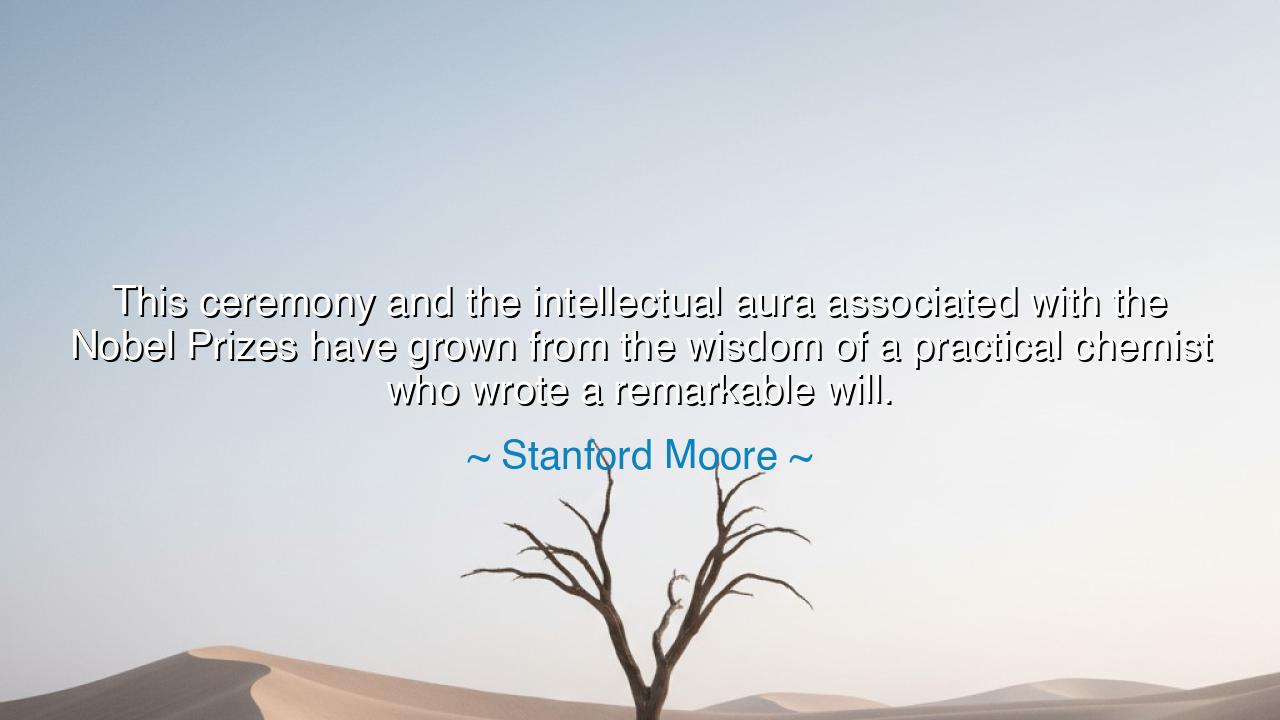
This ceremony and the intellectual aura associated with the
This ceremony and the intellectual aura associated with the Nobel Prizes have grown from the wisdom of a practical chemist who wrote a remarkable will.






Stanford Moore, himself crowned with the laurels of discovery, spoke these words with reverence: “This ceremony and the intellectual aura associated with the Nobel Prizes have grown from the wisdom of a practical chemist who wrote a remarkable will.” In this reflection, he reminds us that what we now behold as one of the greatest honors of mankind did not spring from pomp or conquest, but from the quiet foresight of one man—Alfred Nobel, a maker of explosives who sought to leave behind a legacy of peace and knowledge rather than destruction.
The meaning is profound. The grandeur of the Nobel Prizes, their intellectual aura, and their solemn ceremonies are not the fruit of chance, but of wisdom—the wisdom of a man who, at the end of his life, turned his gaze from invention to consequence. Alfred Nobel, haunted by the destructive uses of dynamite, chose to bind his wealth not to vanity, but to a covenant with the future: to reward those who advanced science, literature, and peace. From this act of intention, a tradition was born that continues to uplift the world.
History bears witness to the origin of this truth. In 1888, Nobel read his own obituary, mistakenly published after the death of his brother. It called him the “merchant of death,” condemning him for the devastation his inventions had wrought. Struck by this judgment, Nobel resolved to redefine his legacy. In his will, he devoted his fortune to prizes that would celebrate the highest achievements of the human spirit. Thus, from the remorse of a chemist and the stroke of a pen came a monument greater than any empire—a prize that honors not destruction, but creation.
Moore’s words also remind us that greatness often comes not from the deeds themselves, but from the wisdom that reshapes them. Nobel could not erase the past, but he could guide the future. His decision transformed the fruits of industry into the seeds of progress. The annual ceremony, with its gathering of the world’s finest minds, is a living testimony that one man’s reflection, one act of humility, can echo across centuries.
Therefore, let the seeker of truth learn this lesson: it is never too late to turn from vanity to virtue, from destruction to renewal. Wisdom, even when born in sorrow, can create traditions that uplift generations yet unborn. From a chemist’s laboratory to the halls of Stockholm, from the fire of invention to the light of peace, the Nobel Prizes remind us that the greatest legacy is not what we build for ourselves, but what we bequeath to all humanity.






AAdministratorAdministrator
Welcome, honored guests. Please leave a comment, we will respond soon